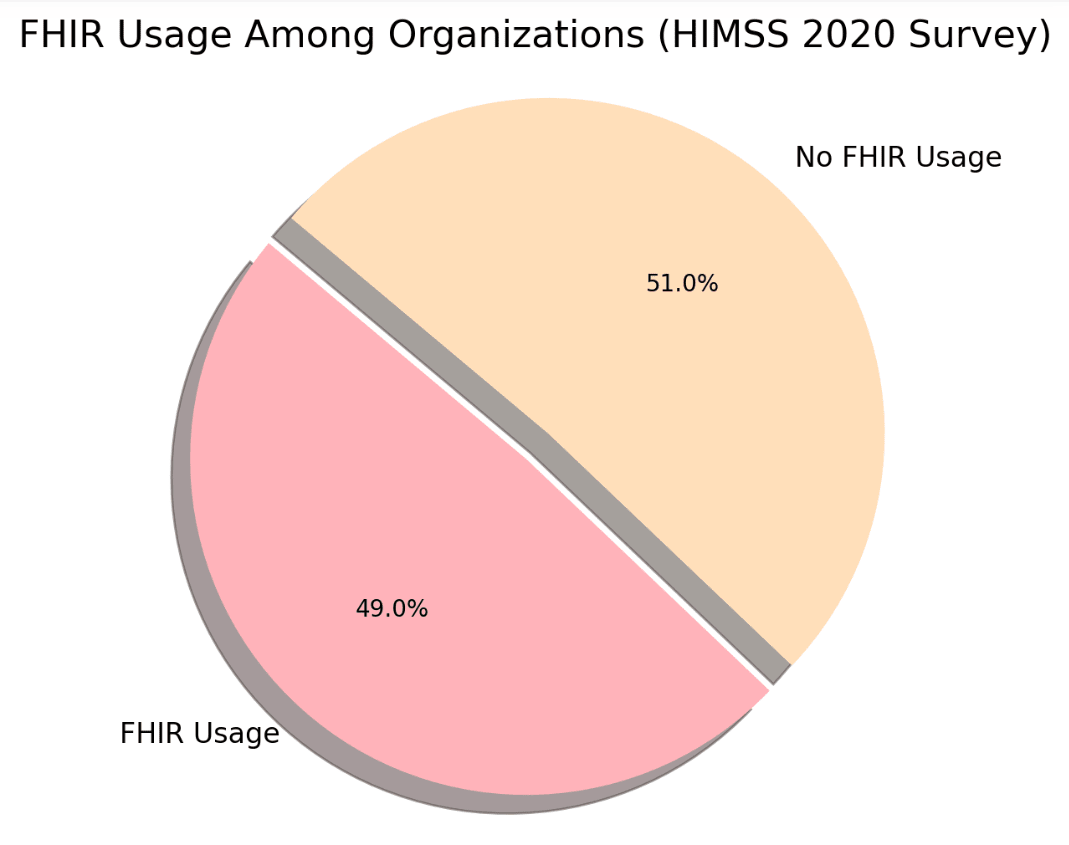HIPAA compliant cloud storage is a secure way for healthcare providers and business associates to store and share ePHI in the cloud while meeting the privacy and security rules of HIPAA. These services combine encrypted file storage with secure transfer protocols such as SFTP and FTPS.
This post will explore the importance of HIPAA compliance and secure cloud storage for healthcare organizations.

What is ePHI?
What is ePHI? Electronic protected health information (ePHI) includes any health-related data that identifies an individual and is created, received, stored, or transmitted electronically.
- Medical histories
- Lab test results
- Diagnoses
- Treatment plans
- Billing information
- Insurance details
- Other sensitive data
For a quick look at how ePHI is determined under HIPAA's Privacy Rule, watch the HIPAA Help Centre video below.
What is HIPAA compliance?
The healthcare industry has rapidly transitioned to electronic health records (EHRs) and other digital forms of patient data. While this shift has brought about many benefits, it has also created new challenges in terms of data privacy and security.
This is where the Health Insurance Portability and Accountability Act (HIPAA) comes in, mandating strict regulations to protect sensitive patient information, including ePHI.
HIPAA requires that all covered entities, including healthcare providers and insurers, protect ePHI from unauthorized access, disclosure, and alteration.
This means that healthcare organizations must implement appropriate physical, technical, and administrative safeguards to ensure the confidentiality, integrity, and availability of ePHI.
This starts with the implementation of secure cloud storage, preferably with a HIPAA compliant cloud storage and transfer solution like SFTP To Go.
Benefits of HIPAA cloud storage and file sharing?
Fast Healthcare Interoperability Resources (FHIR) was established in 2014 as a standard for exchanging healthcare information electronically. However, despite its introduction, many system deployments have yet to support this standard.
According to a 2020 survey by the Healthcare Information and Management Systems Society (HIMSS), 49% of respondents reported some degree of FHIR usage within their organizations.

Nevertheless, interoperability remains a critical issue for healthcare providers. One solution is to utilize HIPAA compliant cloud storage to share and integrate files between systems, using secure file transfer protocols such as SFTP, FTPS, or Amazon S3.
These tools enable HIPAA compliant file sharing and reliable data exchange accross healthcare systems.By implementing these processes, healthcare organizations can improve patient care, reduce medical errors, and meet HIPAA and GDPR compliance requirements.
These processes include:
- Care coordination: By facilitating enhanced communication and collaboration among healthcare providers, patients receive better care and are less likely to experience medical errors.
- Clinical decision support: Access to aggregated patient data and evidence-based guidelines helps healthcare providers make informed decisions about patient care.
- Quality improvement: Monitoring healthcare performance metrics helps to drive continuous improvement in care delivery and patient outcomes.
- Research and development: Facilitating data sharing for collaborative research projects and the development of new treatments and therapies.
What are the benefits of HIPAA compliant cloud storage?
HIPAA compliant cloud storage enables secure, encrypted management of ePHI while supporting remote access, scalable infrastructure, and automated file workflows. It allows healthcare providers to store and transfer patient data confidently while complying with U.S. healthcare data privacy laws.
Why is HIPAA cloud file sharing important?
HIPAA cloud file sharing allows healthcare providers to collaborate without compromising security. It supports interoperability between legacy systems, improves care coordination, and reduces the risk of data breaches by enforcing encryption, access controls, and audit logging.
What are the cloud storage requirements for covered entities
Healthcare organizations that qualify as covered entities under HIPAA — such as providers, insurers, and clearinghouses — must meet specific cloud storage requirements to remain compliant.
As the shift to electronic health data continues, secure cloud storage plays a vital role in maintaining HIPAA compliant file storage and transfer practices.
What does HIPAA require from cloud storage providers?
HIPAA mandates that any cloud service used to store or transmit ePHI must implement strict safeguards and enter into a Business Associate Agreement (BAA). This ensures that both covered entities and their vendors are accountable for data security and privacy.
Cloud storage requirements for covered entities include:
- Provider compliance: The storage vendor must be fully HIPAA compliant and sign a BAA outlining their responsibilities for handling ePHI.
- Security measures: Encryption at rest and in transit (such as AES-256), access controls, and secure authentication methods must be implemented.
- Regular audits: Periodic risk assessments must be conducted to identify and address any potential security issues.
- Emergency protocols: Healthcare organizations must define procedures for data backup, disaster recovery, and emergency access to ensure continuity and availability of ePHI.
Meeting these HIPAA cloud storage requirements helps healthcare providers reduce compliance risk, improve reliability, and maintain trust when handling sensitive health data.

To help you navigate the complexities of healthcare data management, we've developed The Complete HIPAA Checklist: Compliance for Healthcare Providers & Business Associates in 2024/2025.
This comprehensive ebook offers a full overview of HIPAA regulations, and step-by-step guidance to ensure your healthcare organization stays compliant and prepared.
Download the Complete HIPAA Checklist for 2024/2025 and take the next step towards securing your organization’s future.
SFTP To Go: HIPAA compliant cloud storage with secure SFTP transfer—for healthcare
SFTP To Go is a HIPAA compliant cloud storage and file transfer solution designed for healthcare providers and business associates. It lets organizations to store, share, and manage ePHI securely while fulfilling all cloud storage requirements under HIPAA.
By combining cloud SFTP access with strong encryption, access controls, and detailed audit logs, SFTP To Go simplifies compliance for covered entities, without the need to maintain servers or complex infrastructure.
Key features include:
- End-to-end encryption: Encrypts ePHI at rest and in transit using industry-standard protocols such as AES‑256 and SFTP.
- Access controls and audit logs: Enforces least-privilege access, tracks user activity, and maintains logs for HIPAA audit readiness.
- Managed cloud platform: Enables secure file sharing, built-in S3 storage, and data automation, all in a compliant, hosted environment.
- US-based data hosting: Supports HIPAA data residency requirements with regional hosting and signed BAAs.
To learn more about how SFTP To Go can benefit your organization, sign up today and reach out to our friendly support team to sign a BAA.
Download the Complete HIPAA Checklist for 2024/2025 and take the next step towards securing your organization’s future.
Frequently Asked Questions
What is considered ePHI under HIPAA?
ePHI stands for electronic protected health information and includes any identifiable patient data stored or transmitted electronically. This includes medical records, billing data, test results, and treatment plans. HIPAA requires healthcare organizations and their business associates to protect ePHI using secure storage and access controls.
What makes cloud storage HIPAA compliant?
To be HIPAA compliant, cloud storage must include end-to-end encryption (e.g., AES‑256), access controls, audit logs, and a signed Business Associate Agreement (BAA). It must also ensure data availability, integrity, and confidentiality through regular audits and disaster recovery plans.
Why is HIPAA compliant cloud storage important for healthcare?
HIPAA compliant cloud storage enables secure storage and sharing of sensitive patient information across systems. It improves interoperability, supports secure file transfer using protocols like SFTP or S3, and helps providers meet legal obligations under US data protection laws.
What are the cloud storage requirements for HIPAA covered entities?
HIPAA requires cloud storage providers to sign a BAA, implement strong encryption and access controls, conduct risk assessments, and support data recovery and emergency access. These safeguards protect ePHI from breaches and unauthorized use.
How does SFTP To Go support HIPAA compliant file storage?
SFTP To Go provides HIPAA compliant cloud storage and file transfer with end-to-end encryption, audit logging, access management, and US-based data hosting. It offers a BAA to covered entities and supports protocols like SFTP, FTPS, HTTPS, and S3 for secure file exchange.
Does HIPAA compliant cloud storage help with care coordination?
Yes, it enables timely and secure file sharing between systems and providers, enhancing communication, reducing errors, and improving patient outcomes. This is especially important for care coordination and clinical decision-making in distributed environments.
What is a BAA and why is it required for HIPAA cloud services?
A BAA, or Business Associate Agreement, is a mandatory legal contract between a healthcare provider and any vendor handling ePHI. It defines each party’s responsibilities under HIPAA to protect patient data and ensures compliance with privacy and security rules.

